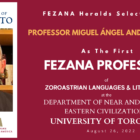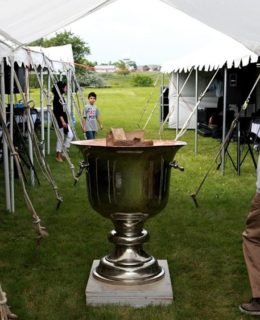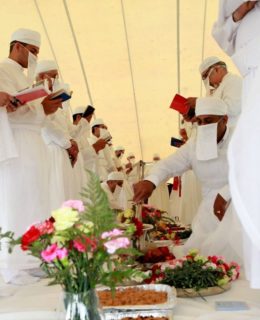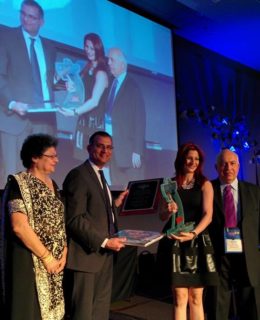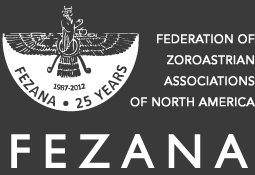FEZANA Heralds Selection of Prof. Miguel Ángel Andrés-Toledo as First FEZANA Professor in Zoroastrian Languages and Literatures at the Department of Near and Middle Eastern Civilizations of the University of Toronto
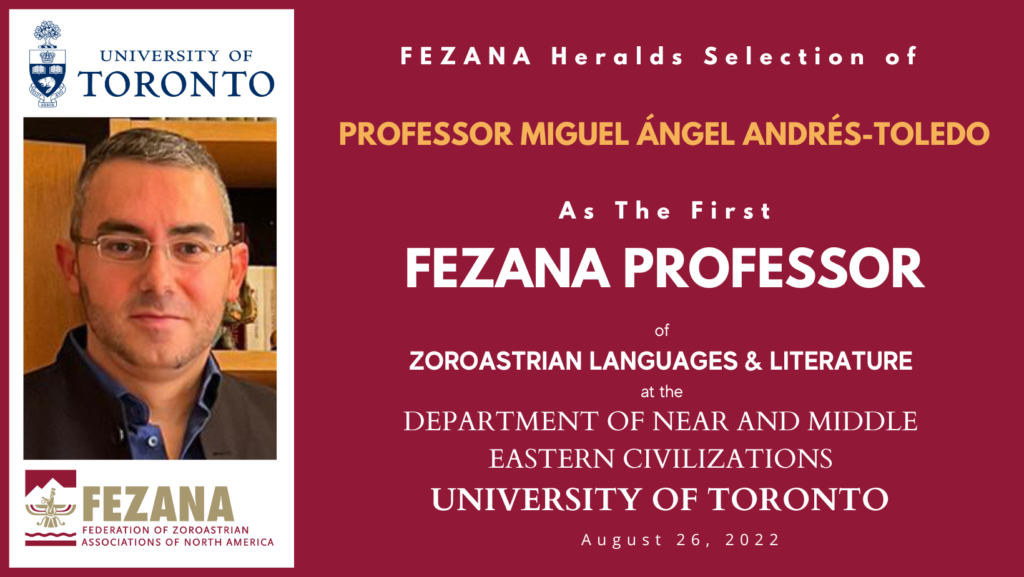
Starting Sept. 1, Prof. Andrés-Toledo marks a new and transformative era in the study of Zoroastrian language and literature in the Western hemisphere
TORONTO, Sept. 1, 2022 – FEZANA, the Federation of Zoroastrian Associations of North America, heralded its support for the University of Toronto’s official selection of Miguel Ángel Andrés-Toledo to serve as the first-ever FEZANA Professor in Zoroastrian Languages and Literatures at the Department of Near and Middle Eastern Civilizations of the University of Toronto, effective Sept. 1, 2022.
“We are elated to hear about the selection of Prof. Andrés-Toledo as the first FEZANA Professor in Zoroastrian Languages and Literatures,” said FEZANA President Arzan Sam Wadia. “This milestone achievement will transform and advance the study of Zoroastrian languages and literature in the Western hemisphere for future generations, and marks an historic moment for FEZANA, its member associations and small groups, and the hundreds of patrons who donated to turn concept into reality.”
Wadia said the FEZANA professorship at the University of Toronto is the single largest capital project in FEZANA’s 30-year history and would not have been possible without the collective participation of individuals and institutions from around the world, and that the burgeoning North American Zoroastrian community will remain grateful to every donor who helped realize this dream.
“I would like to express my most sincere gratitude to FEZANA and the Zoroastrian community for their long-standing support and generous contribution to establish the FEZANA Professorship of Zoroastrian Languages and Literatures at the University of Toronto,” Prof. Andrés-Toledo said. “I feel very honoured and privileged for having been appointed as the FEZANA Professor, a unique position that will definitely boost the academic study of the Zoroastrian cultural heritage in North America and around the world.
Prof. Andrés-Toledo said he is committed to: developing a wide range of courses on Zoroastrian languages and literatures to train a diverse population of students interested in Zoroastrianism; to promoting collaborative and top research in different topics of Zoroastrian languages and literatures since antiquity, with a specific focus on Avestan and Pahlavi, that will result in a varied number of publications; and to engaging with the Zoroastrian community in outreach initiatives, public talks and future projects that may be relevant for the community.
He has worked on ten international projects in the fields of Old and Middle Iranian languages and literatures, Zoroastrianism, and Indo-Iranian linguistics, like for instance the Avestan Digital Archive (University of Salamanca) or the Middle Persian Dictionary Project (Hebrew University of Jerusalem). His research interests mainly cover the Avestan and Pahlavi languages and literatures, with a specific focus on the Pahlavi translations and exegesis of Avestan texts and their written transmission.
He has been teaching in-person and online courses on Zoroastrian languages and literatures, and other related topics, for almost two decades at several international universities. At the University of Toronto, he will offer courses on Avestan, Old Persian, Middle Persian (Pahlavi), and Zoroastrian Literature of Ancient and Late Antique Iran, and will expand the training of students with other specific courses on these languages and literatures.
Prof. Andrés-Toledo has previously held academic positions at the University of Salamanca, Hebrew University of Jerusalem, University of Copenhagen, and Free University of Berlin. Among other publications, he is the author of the monographs El hilo de la vida y el lazo de la muerte en la tradición indoirania [The thread of life and the noose of death in the Indo-Iranian tradition] (2010. Valencia, Spain) and The Zoroastrian Law to Expel the Demons: Wīdēwdād 10-15. Critical Edition, Translation and Glossary of the Avestan and Pahlavi Texts (2016. Wiesbaden, Germany).
“The FEZANA Professorship in Zoroastrian Languages and Literature at the University of Toronto ensures a foundational religion, and its heritage will be studied in perpetuity,” said Prof. Jamsheed K. Choksy, Distinguished Professor and Chair of the Department of Central Eurasian Studies at the University of Indiana – Bloomington. “This is a much-needed undertaking of enduring value.”
Zoroastrians are followers of one of the world’s oldest monotheistic religions founded by the prophet Zarathushtra more than 3,000 years ago in ancient Iran. Zoroastrians have long served as bridge builders in interfaith dialogue, believing in truth, righteousness, charity, beneficence, respect and care for the environment, and the ultimate triumph of good over evil. Zoroastrianism flourished as the imperial religion of three Persian empires, those of the Achaemenians, Parthians and Sassanians, and was the dominant religion from Turkey and eastward to China during those times. North America’s Zoroastrian community includes those who arrived from the Indian subcontinent, known as Parsis, and those who came directly from Iran seeking religious freedom.
About FEZANA
Founded in 1987, the Federation of Zoroastrian Associations of North America (FEZANA) represents a diverse and growing Zarathushti community in the western diaspora. Guided by the blessings of Ahura Mazda and the teachings of prophet Zarathushtra, the non-profit federation serves as the coordinating body for 27 Zoroastrian associations and 14 corresponding groups in Canada and the United States. The activities of FEZANA are conducted in a spirit of mutual respect, cooperation and unity among all member associations, and with due regard for the Zarathushti principles of goodness, truth, reason, benevolence, implicit trust and charity toward all mankind. Visit www.fezana.org and follow FEZANA on Instagram, Twitter and Facebook @TheFEZANA.
###
Media contact: Jim Engineer | Chief Communications Officer | FEZANA <pr> at <fezana> dot <org>

